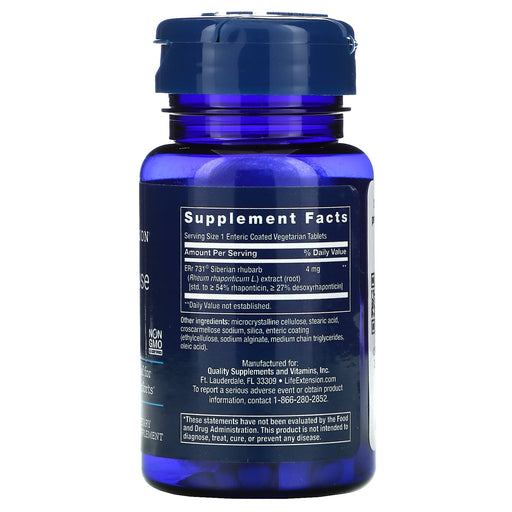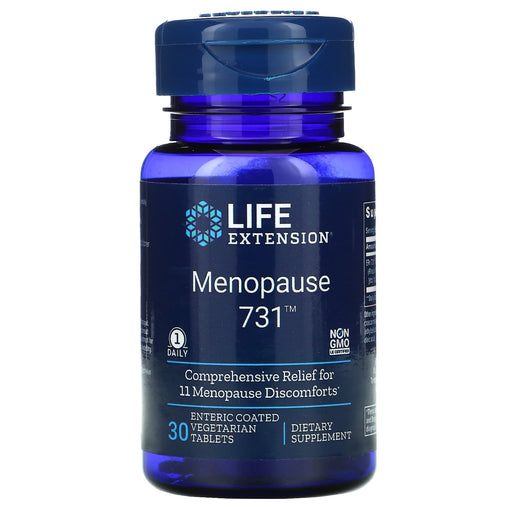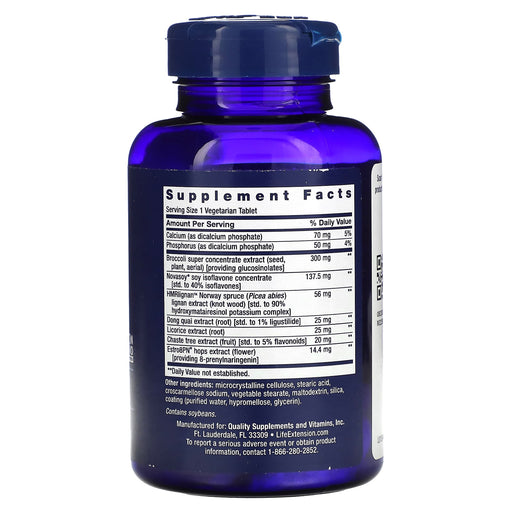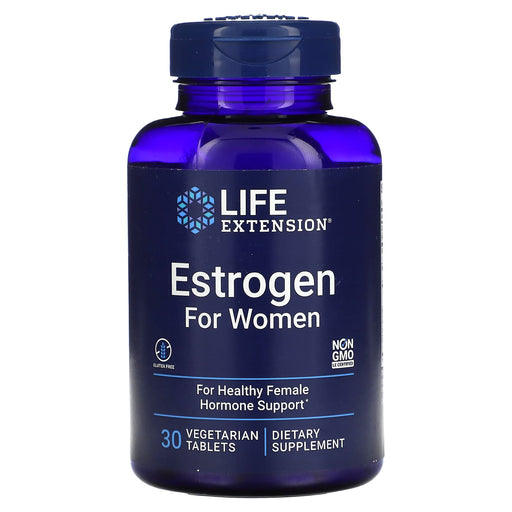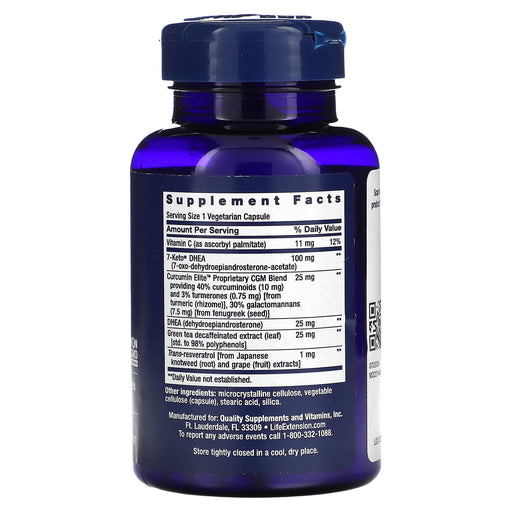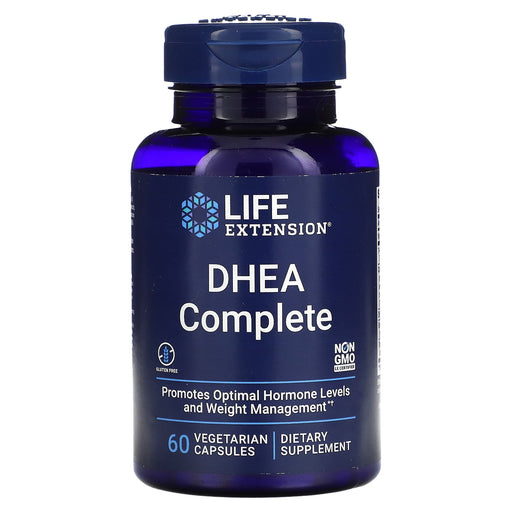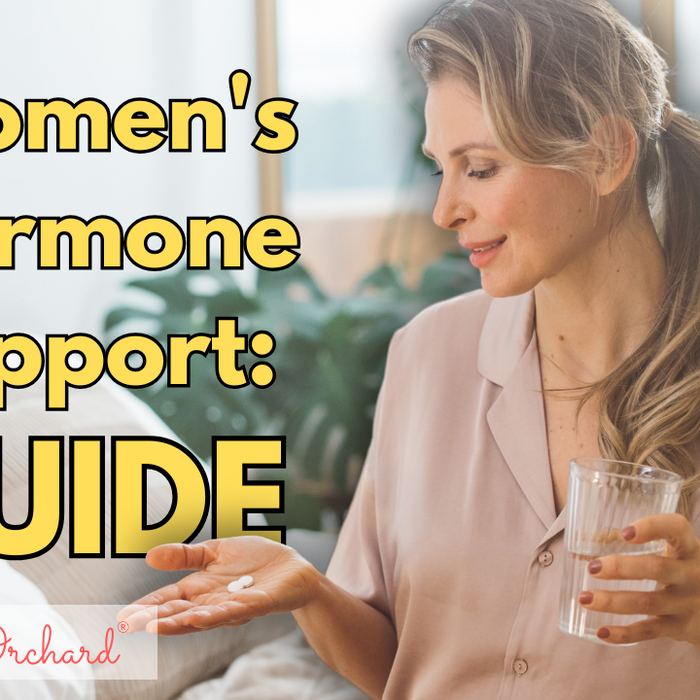
Balancing Hormones Naturally for Optimal Well-Being
Hormones play a crucial role in regulating various aspects of women's health, from menstrual cycles and fertility to mood, energy levels, and overall well-being. When hormones become imbalanced, it can lead to a wide range of symptoms and health concerns. Fortunately, targeted nutritional support can help women naturally balance their hormones and feel their best at every stage of life.
Understanding Hormonal Imbalances in Women
Hormonal imbalances can occur due to a variety of factors, including stress, poor diet, lack of sleep, and certain health conditions. Some common hormonal imbalances in women include:
- Estrogen Dominance: Characterized by an excess of estrogen relative to progesterone, which can lead to symptoms such as PMS, irregular periods, and weight gain.
- Low Progesterone: Often associated with estrogen dominance, low progesterone levels can contribute to menstrual irregularities, fertility issues, and mood disturbances.
- Thyroid Imbalances: Both hypothyroidism (underactive thyroid) and hyperthyroidism (overactive thyroid) can disrupt hormonal balance and lead to a range of symptoms, including fatigue, weight changes, and mood swings.
- Polycystic Ovary Syndrome (PCOS): A common endocrine disorder characterized by insulin resistance, excess androgens, and irregular menstrual cycles.
- Menopause: The natural decline in estrogen and progesterone during menopause can lead to symptoms such as hot flashes, night sweats, mood changes, and vaginal dryness.
Key Supplements for Women's Hormone Support
When selecting supplements to support hormonal balance in women, look for products that contain evidence-based ingredients known to address specific hormonal concerns and promote overall endocrine health, such as:
- Chasteberry (Vitex agnus-castus): This herbal extract has been traditionally used to support hormonal balance, particularly in managing PMS and menstrual irregularities. It may help increase progesterone levels and reduce estrogen dominance.
- Maca Root: Derived from a Peruvian root vegetable, maca has adaptogenic properties that can help the body cope with stress and support overall endocrine function. It may be particularly beneficial for managing menopausal symptoms.
- DIM (Diindolylmethane): This compound, found in cruciferous vegetables like broccoli and kale, helps support healthy estrogen metabolism and may be beneficial for managing estrogen dominance.
- Vitamin D: This essential vitamin plays a crucial role in hormone production and regulation. Vitamin D deficiency has been linked to various hormonal imbalances, including PCOS and thyroid disorders.
- Omega-3 Fatty Acids: These healthy fats, found in fish oil and other sources, have anti-inflammatory properties and may help support hormonal balance, particularly in managing menstrual pain and PMS.
Women's Hormone Support Supplements and Related Vitamins
To further enhance the benefits of women's hormone support supplements, consider pairing them with additional vitamins and minerals that work synergistically to promote endocrine health and overall well-being, such as:
- B Complex Vitamins: These essential vitamins, particularly vitamin B6 and vitamin B12, play important roles in hormone production and regulation. They may be especially beneficial for managing PMS and supporting healthy menstrual cycles.
- Magnesium: This mineral is involved in hundreds of biochemical reactions in the body, including hormone production and balance. Magnesium may be particularly helpful for managing PMS, menstrual cramps, and menopausal symptoms.
- Zinc: This essential mineral supports overall endocrine function and may be beneficial for managing hormonal imbalances associated with PCOS and thyroid disorders.
- Vitamin E: This fat-soluble vitamin acts as a powerful antioxidant and supports overall hormonal balance. It may be particularly beneficial for managing PMS and menopausal symptoms.
Choosing High-Quality Women's Hormone Support Supplements
When selecting women's hormone support supplements, it's essential to choose high-quality products from reputable brands. Consider the following factors:
- Targeted Formulas: Look for supplements that are specifically formulated to address common hormonal imbalances in women, such as estrogen dominance, low progesterone, or menopausal symptoms.
- Evidence-Based Ingredients: Choose products that contain clinically researched ingredients at effective doses, ensuring optimal safety and efficacy.
- Purity and Quality: Opt for supplements manufactured in GMP-certified facilities, free from contaminants and harmful additives, and third-party tested for purity and potency.
- Brand Reputation: Select supplements from trusted brands with a history of producing effective, science-backed women's health products and a commitment to transparency and quality.
Incorporating Women's Hormone Support Supplements into Your Wellness Routine
To maximize the benefits of women's hormone support supplements, consider the following tips:
- Consult with a Healthcare Professional: Before starting any new supplement regimen, consult with a healthcare provider specializing in women's health to determine which products and doses are appropriate for your individual needs and health status.
- Pair with a Balanced Diet: While supplements can help support hormonal balance, they should be used in conjunction with a balanced, nutrient-dense diet that includes plenty of whole foods, such as fruits, vegetables, whole grains, lean proteins, and healthy fats.
- Implement Lifestyle Changes: Supplement use should be combined with positive lifestyle habits, such as regular exercise, stress management, and self-care practices, to support overall endocrine health and well-being.
- Be Patient and Consistent: Balancing hormones naturally may take time. Be patient and consistent with your supplement use and lifestyle modifications to allow your body the opportunity to respond and achieve balance.
Achieve Hormonal Harmony and Optimal Well-Being
Ready to take control of your hormonal health and feel your best at every stage of life? Experience our collection of premium women's hormone support supplements and find the targeted support you need to achieve hormonal harmony and optimal well-being.
Our women's hormone support supplements are carefully formulated with evidence-based ingredients and manufactured to the highest quality standards, ensuring that you receive the best possible support for your unique needs. Whether you're looking to manage PMS, support healthy menstrual cycles, or navigate the transition through menopause, our supplements can help you on your journey.
Remember, while supplements can be a valuable tool in your hormone-balancing toolbox, they should be part of a comprehensive approach that includes a balanced diet, regular exercise, stress management, and guidance from a qualified healthcare provider. By taking a holistic approach to your endocrine health, you can empower yourself to feel your best, inside and out.
Start your journey towards hormonal harmony and optimal well-being with our premium women's hormone support supplement collection. Browse our products today and take the first step towards nourishing your body, supporting your endocrine system, and embracing the power of natural hormone balance at every stage of life.
Frequently Asked Questions about Women's Hormone Support
1. What is female hormone support?
Female hormone support refers to the use of various strategies, including lifestyle changes, supplements, and medications, to help balance and regulate the complex interplay of hormones in a woman's body. Hormones like estrogen, progesterone, and testosterone play crucial roles in regulating menstrual cycles, fertility, mood, bone health, and overall well-being. Hormone imbalances can lead to a range of symptoms and health concerns, such as irregular periods, PMS, fertility issues, and menopausal symptoms. Female hormone support aims to address these imbalances and promote optimal hormone function for improved health and quality of life.
2. What can a woman use to balance hormones?
There are several strategies women can use to help balance hormones naturally:
- Maintain a healthy weight through a balanced diet and regular exercise
- Reduce stress through relaxation techniques like meditation, yoga, or deep breathing
- Get enough sleep to help regulate hormone production and support overall health
- Limit exposure to endocrine-disrupting chemicals found in certain plastics, pesticides, and personal care products
- Eat a diet rich in whole foods, including plenty of fruits, vegetables, whole grains, and lean proteins
- Consider supplements that may support hormone balance, such as omega-3 fatty acids, vitamin D, or chasteberry
- Engage in regular physical activity to help regulate insulin levels and support healthy weight management
In some cases, medical interventions such as hormone replacement therapy may be necessary to address specific hormone imbalances.
3. What can I drink to balance my female hormones?
Certain beverages may help support hormone balance in women:
- Green tea: Contains antioxidants that may help reduce inflammation and support healthy estrogen metabolism
- Spearmint tea: May help reduce testosterone levels in women with PCOS, improving symptoms like hirsutism and acne
- Lemon water: Supports liver function and detoxification, which can help the body eliminate excess hormones
- Herbal teas: Certain herbs like chasteberry, red clover, and black cohosh may help support hormone balance, particularly during menopause
- Water: Staying hydrated is essential for overall health and can help flush out toxins and excess hormones
It's important to note that while these beverages may offer some benefits, they should be used in conjunction with a balanced diet, regular exercise, and other lifestyle strategies for optimal hormone balance.
4. What drink is good for hormones?
Certain drinks may support hormone balance in women:
- Green tea: Rich in antioxidants that may help reduce inflammation and support healthy estrogen metabolism
- Spearmint tea: May help reduce testosterone levels in women with PCOS, improving symptoms like hirsutism and acne
- Lemon water: Supports liver function and detoxification, which can help the body eliminate excess hormones
- Herbal teas: Teas made with chasteberry, red clover, or black cohosh may help support hormone balance, particularly during menopause
- Water: Staying hydrated is crucial for overall health and can help flush out toxins and excess hormones
While these drinks may offer some benefits, they should be part of a holistic approach to hormone balance that includes a balanced diet, regular exercise, stress management, and other lifestyle strategies.
5. What are the signs of hormone imbalance?
Signs and symptoms of hormone imbalance in women can vary depending on the specific hormones involved but may include:
- Irregular periods or changes in menstrual flow
- Unexplained weight gain or difficulty losing weight
- Fatigue and low energy levels
- Mood changes, such as irritability, anxiety, or depression
- Hot flashes and night sweats, particularly during menopause
- Vaginal dryness or discomfort
- Breast tenderness or changes in breast size
- Acne or skin changes
- Thinning hair or hair loss
- Digestive issues, such as bloating or constipation
- Difficulty sleeping or insomnia
- Low libido or changes in sexual function
If you experience persistent or severe symptoms, it's essential to consult with a healthcare professional to determine the underlying cause and develop an appropriate treatment plan.
6. How can I check if my hormones are normal?
To check if your hormones are normal, you can:
- Consult with a healthcare professional: A doctor can evaluate your symptoms, medical history, and conduct a physical examination to determine if hormone testing is necessary.
- Undergo blood tests: Blood tests can measure levels of specific hormones, such as estrogen, progesterone, testosterone, thyroid hormones, and cortisol.
- Receive a pelvic exam: A gynecologist can assess the health of your reproductive organs and check for any physical signs of hormone imbalances.
- Track your menstrual cycle: Keep a record of your menstrual periods, including length, flow, and any associated symptoms, to help identify patterns or irregularities that may indicate a hormone imbalance.
- Monitor your symptoms: Pay attention to any physical, emotional, or cognitive changes that may be related to hormone fluctuations, such as mood swings, hot flashes, or changes in skin or hair.
If you suspect a hormone imbalance, it's essential to work with a healthcare professional who can provide an accurate diagnosis and develop an appropriate treatment plan tailored to your individual needs.


